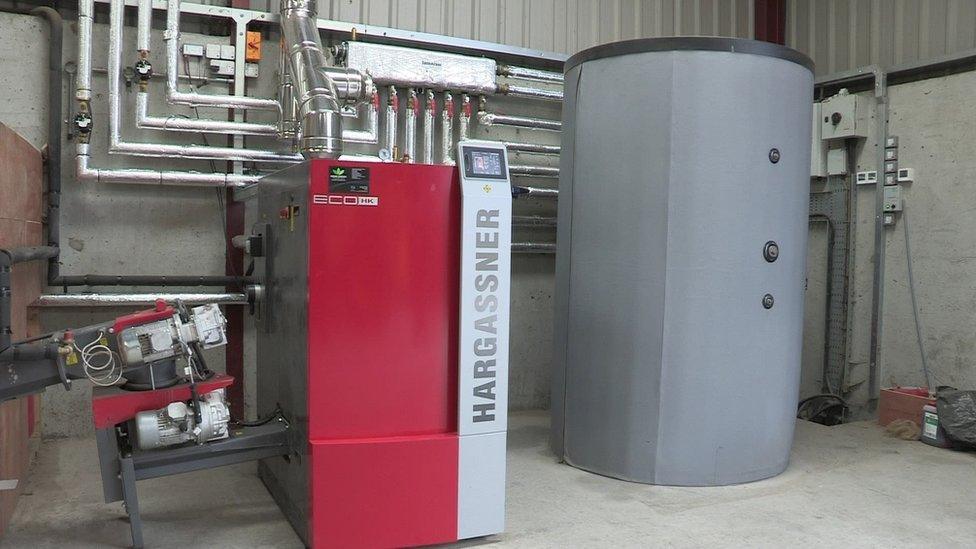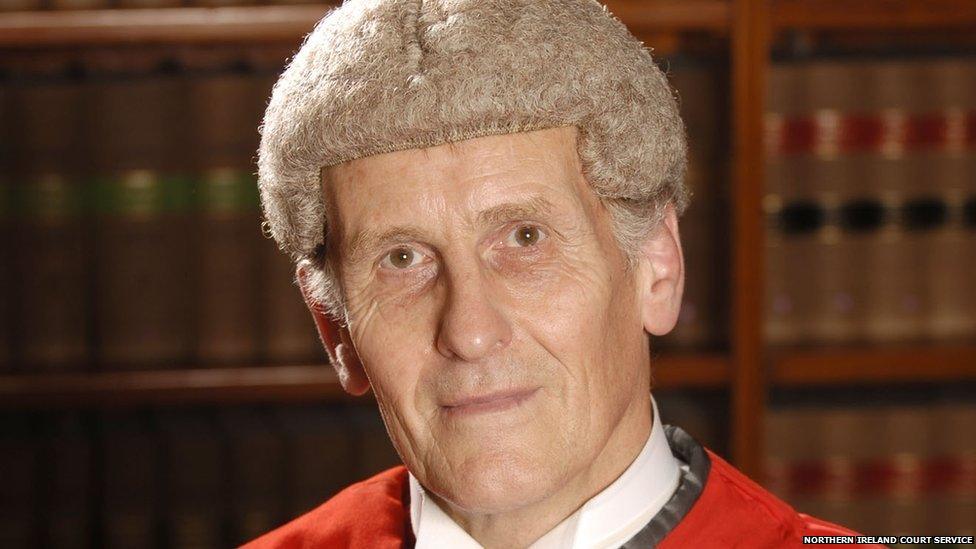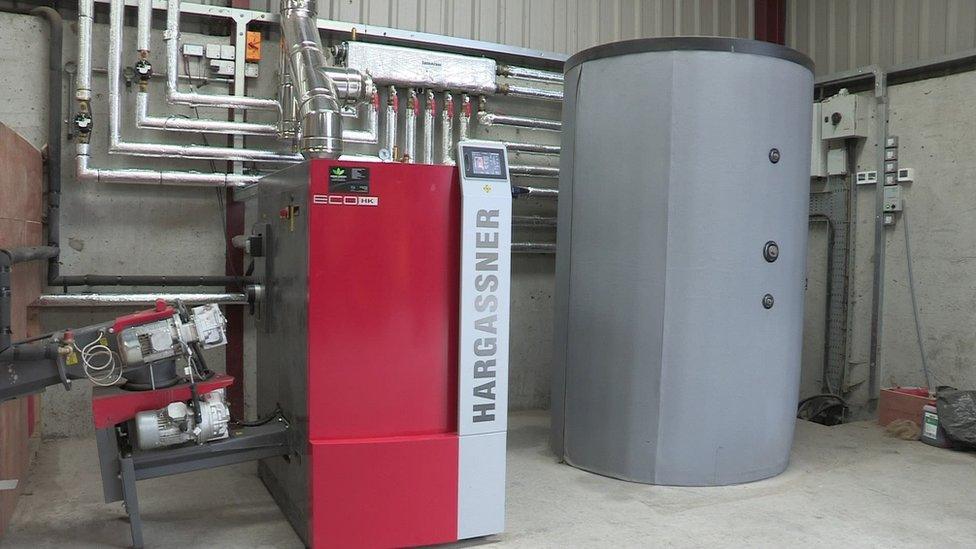RHI legal challenge delayed until Autumn
- Published

The RHI scheme involved wood pellet boilers and was aimed at encouraging energy production from renewable sources
A legal challenge to the cutting of Renewable Heat Incentive (RHI) payments is to be delayed until the autumn.
The High Court in Belfast was told that an economic analysis provided on behalf of a group of boiler owners has added "a new dimension" to proceedings.
The judge agreed to re-list the case for a three-day hearing in October.
More than 500 members of the Renewable Heat Association NI want to judicially review a decision to reduce payments guaranteed for up to 20 years.
They claim there was no legal power for the move, and that Northern Ireland executive officials must have known tariff rates for those signed up to the original 2012 scheme could not be altered retrospectively.
The botched green energy initiative was set up to encourage businesses and other non-domestic users to move from using fossil fuels to renewable heating systems.
However, with operators legitimately able to earn more cash the more fuel they burned, the cost to the public purse has been projected at as much as £500m.

Sir Patrick Coghlin will hear the RHI public inquiry
The scandal led to the collapse of Stormont's power-sharing administration, while a public inquiry chaired by retired judge Sir Patrick Coghlin is to examine the development and roll-out of the scheme.
Earlier this year, former economy minister Simon Hamilton set out revised 2017 RHI regulations as part of cost-cutting proposals.
Lawyers for the association contend this was an illegal step against boiler owners with 20-year contracts.
As part of a wider challenge, they are seeking to have the move declared "ultra vires", or beyond the department's legal powers.
Proceedings began last month, only to be adjourned due to issues over parallels being drawn with case law.

Some of the boilers burn compressed wood pellets
With the hearing scheduled to resume next week, counsel has revealed a fresh development in the case being mounted by the applicants.
A lawyer for the department told the court that an expert analysis of economic matters has been submitted.
"That's a new dimension in the case... it's our assessment that I will not be able to provide a response within the present timescale," he said.
He raised the possibility of the department responding with its own economic appraisal.
Public inquiry
The lawyers for the department and the association both agreed that proceedings should not be put back until after the public inquiry.
They stressed the need to deal with the challenge before the current regulations expire in 2018.
The association lawyer pledged to "move heaven and earth" to have the case ready to resume in the Autumn.
"If that becomes an issue which is insurmountable we would be in a position to inform the court," he added.
Agreeing to adjourn until October, the judge confirmed: "In the light of this evaluation matter I can't hear the case next week."
- Published8 May 2017

- Published23 October 2019
